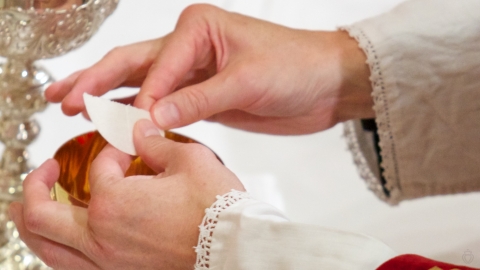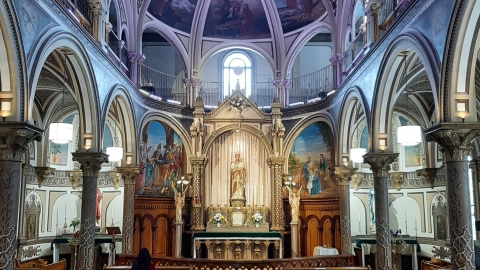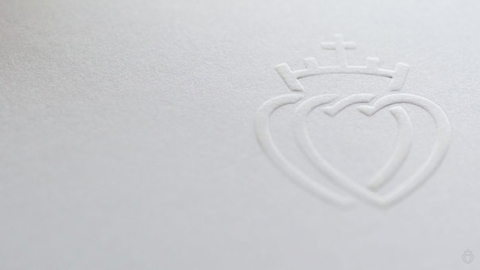United States: Threats Against the Seal of the Confessional Continue
The tabling of a bill in Utah (United States) aimed at removing the legal protection enjoyed by Catholic priests within the framework of sacramental confession is provoking debate in the political class and among the Catholics in the state.
“Motivation for the bill is understandable, to uncover and stop the abuse of children, but HB90 will not have this intended effect,” warns Jean Hill, director of the Peace and Justice Commission of the Diocese of Salt Lake City, in the columns of the Intermountain Catholic of January 17, 2020.
What is more, she adds, “if the priest were no longer protected by law, keeping the confession secret could constitute an offense for him in certain cases... HB90 places a Catholic priest in the untenable position of violating state law and facing criminal penalties, or violating Canon law and facing excommunication.”
The bill that could turn things upside down was introduced by Angela Romero, a member of the Republican Party and an elected member of the Utah House of Representatives. The Deseret News reported, “Romero defended her bill as not one that targets a specific religion, but rather one that’s aimed at protecting victims of sexual abuse.”
Words that reveal at the very least a certain naiveté, when we know that only Catholicism protects in a very particular way the secret of the confessional, since the sacramental seal is never allowed to be broken because of the divine right.
For the moment, Brad Wilson, the President of the Utah House of Representatives, does not support the bill: “I have serious concerns about this bill and the effect it could have … I do not support this bill in its current form,” he said in a statement to the Catholic League for Religious and Civil Rights.
A similar bill had been introduced a few months ago in California and has yet to come to fruition. Eric Kniffin, a Colorado lawyer specializing in the First Amendment—which defines religious freedom in the United States—who had reviewed the California bill, told the Salt Lake Tribune that such proposals are unconstitutional in any event because they “infringe on religious freedom.”
In the eyes of the jurist, contrary to what has been said, the protection enjoyed by members of the Catholic clergy constitutes an opportunity in the fight against the abuse of the most vulnerable. “The confessional is not just a black hole,” he said. “If a priest hears something in confession, they may urge the person to get help, talk to police, or say ‘talk to me outside of the confessional’.”
In a note from the Holy See dated July 1, 2019, Cardinal Mauro Piacenza, head of the Vatican’s Supreme Tribunal of the Apostolic Penitentiary, recalled the inviolable nature of the sacramental secret: “Should the trust in the seal fail, the faithful would be discouraged from accessing the sacrament of penance, and this, obviously, with serious harm to souls … defense of the sacramental seal and the sanctity of confession can never constitute some form of connivance with evil; on the contrary, they represent the only true antidote to evil that threatens man and the whole world.”
Here below, apart from baptism, only the sacrament of penance makes it possible to remit grave sins and to purify souls in order to reconcile them with God.
(Source : Catholic News Agency - FSSPX.Actualités - 21/01/2020)



